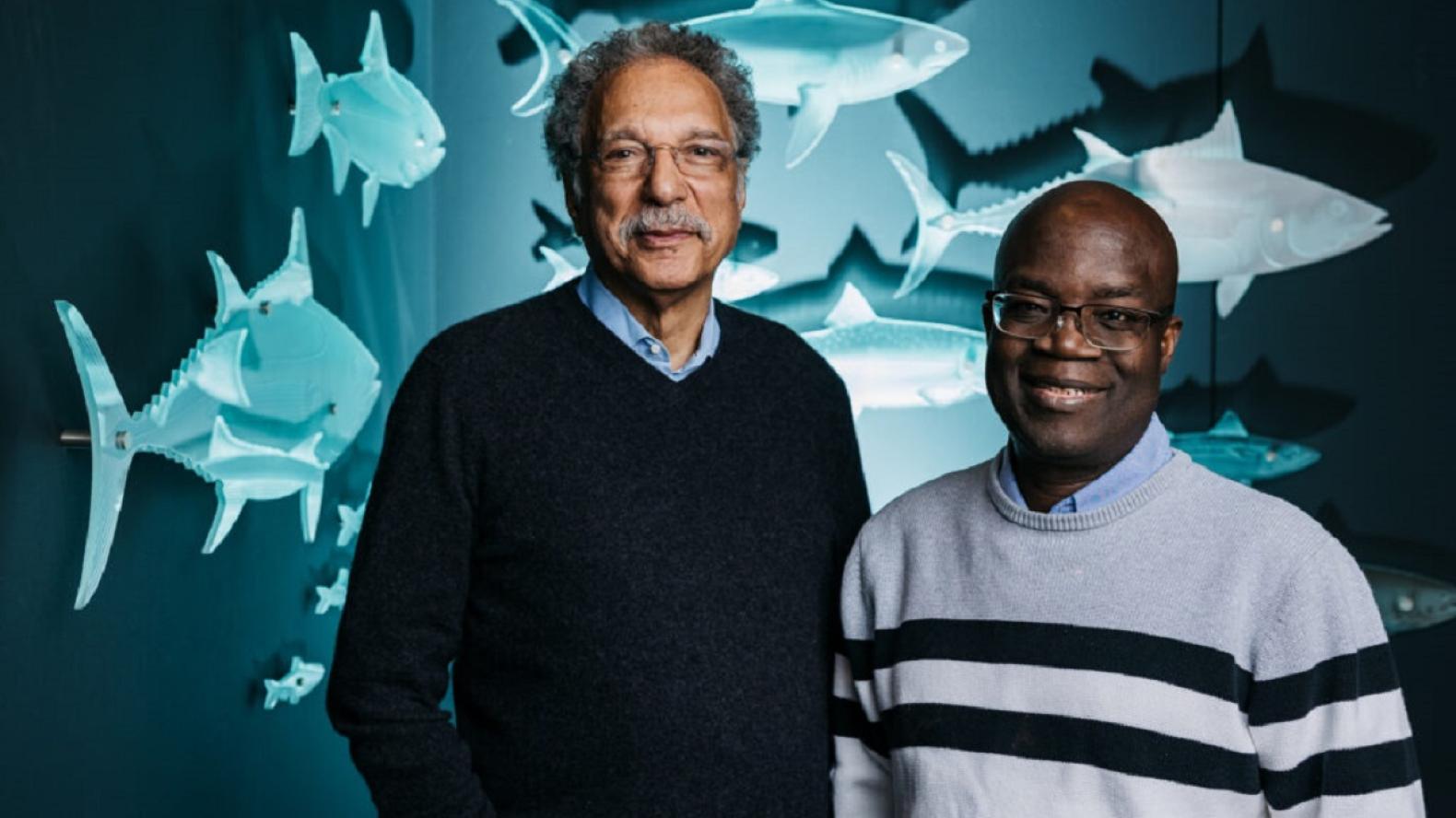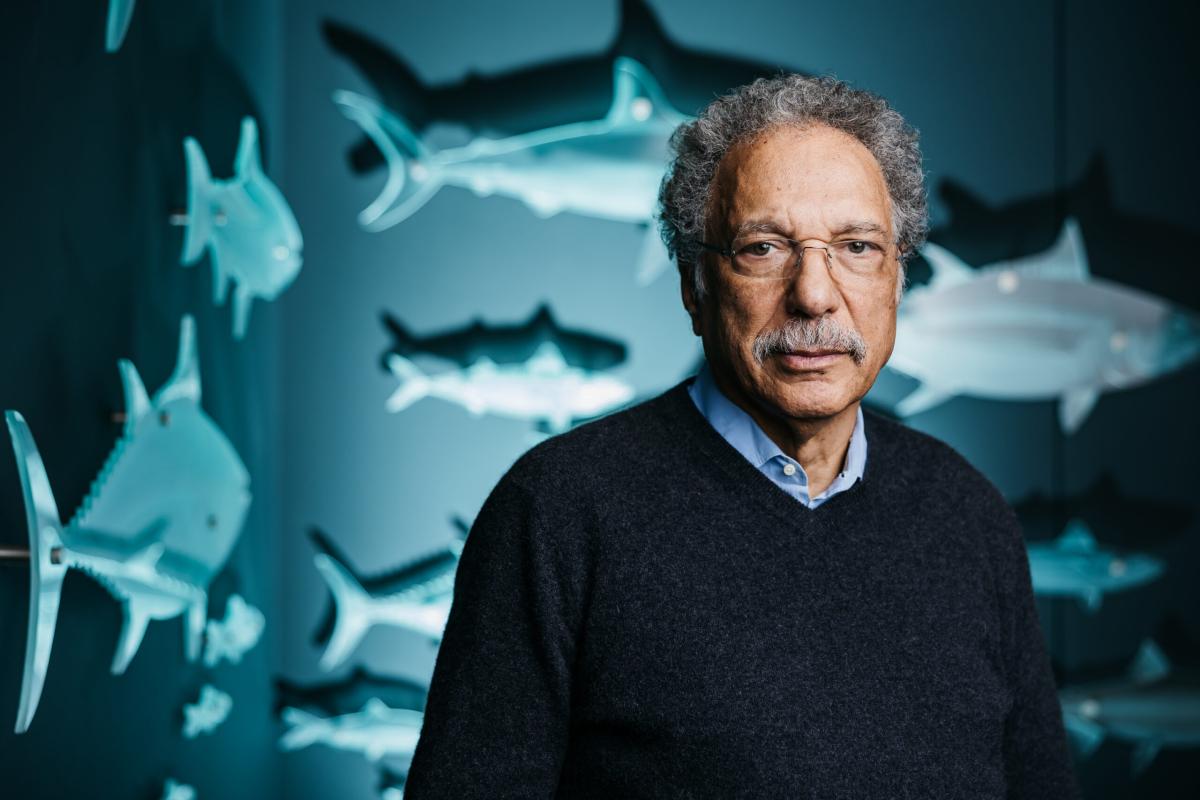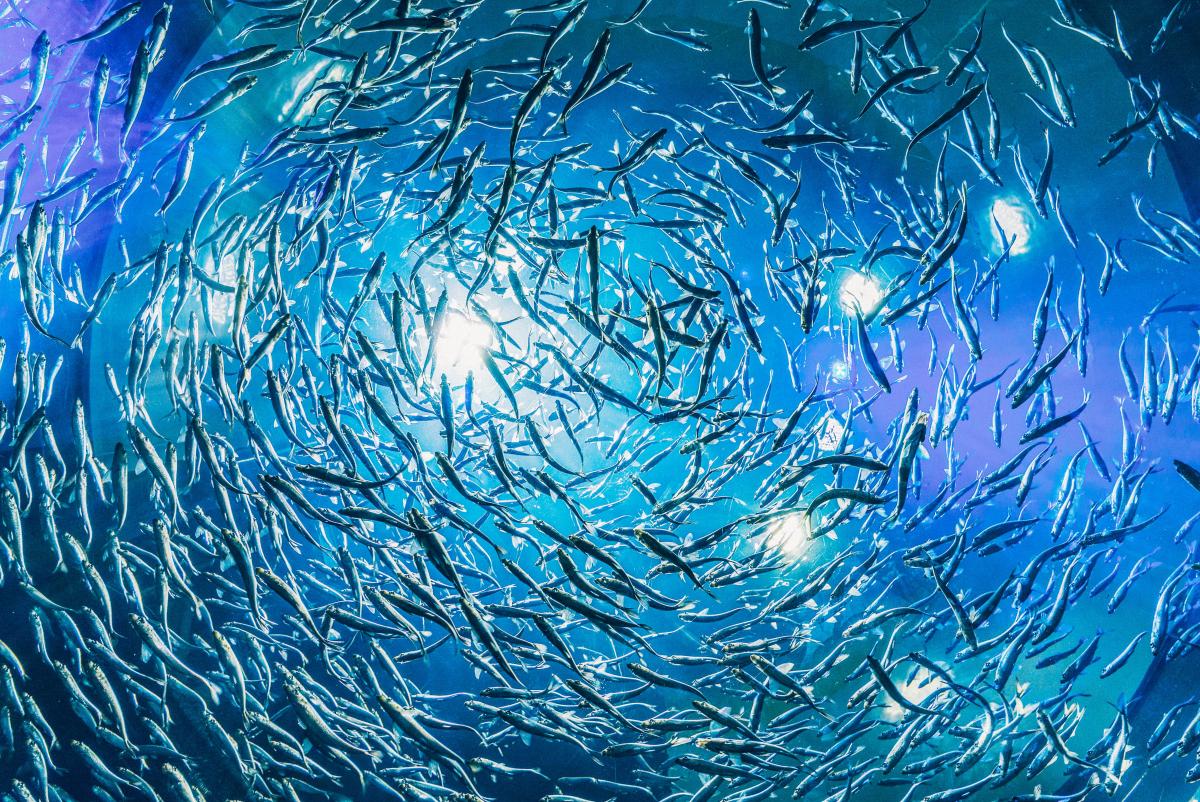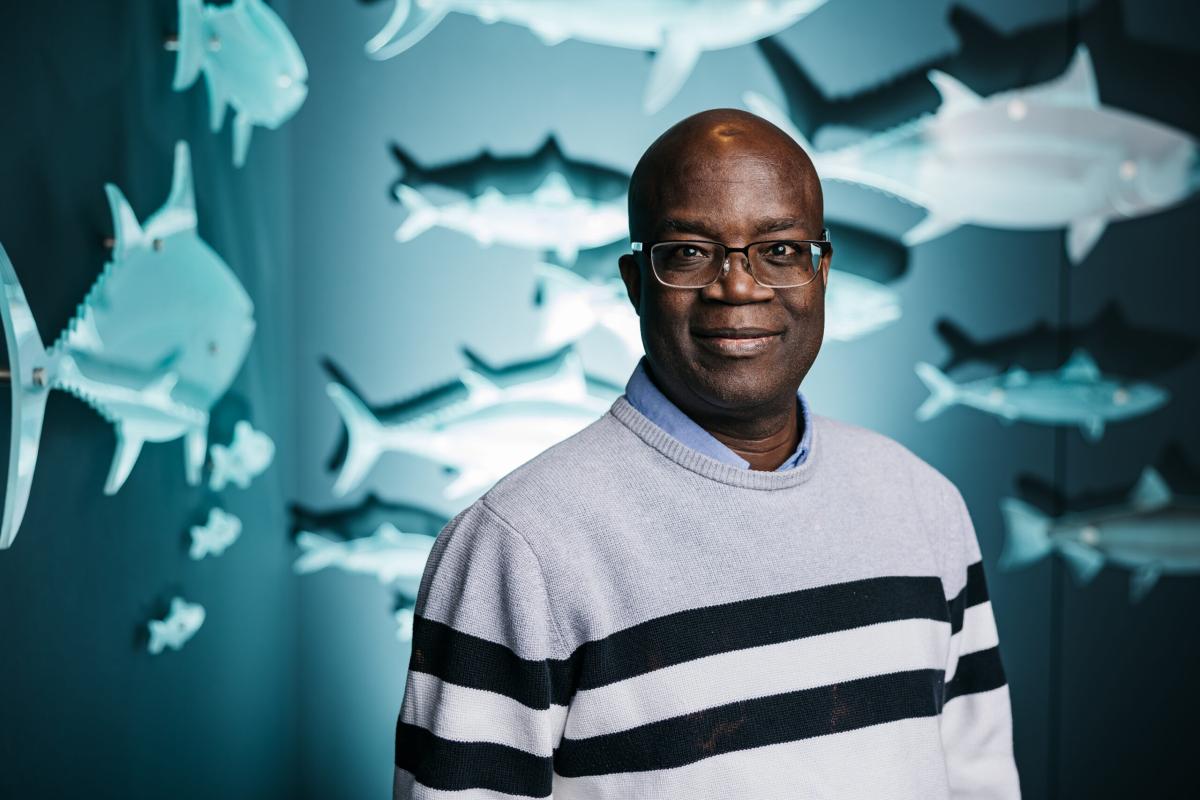
Photo credit: Kim Bellavance
Dr. Pauly and Dr. Sumaila are University Killam Professors and longtime colleagues at the UBC Institute for the Oceans and Fisheries. Winning this prize, they say, gives them an opportunity to spread an urgent and evidence-based message: all fishing on the high seas should be banned.
“Creating no-take marine reserves is something we must do. Banning fishing in the high seas, which is the area outside the 200-nautical-mile zones of maritime countries, will create a critically-needed ‘fish bank’ for the world,” said Sumaila, who is the Canada Research Chair in Interdisciplinary Ocean and Fisheries Economics, and holds a joint appointment at UBC’s School of Public Policy and Global Affairs.

“If we don’t stop overfishing, we will lose marine stocks essential for food security and biodiversity, and the ocean’s ability to effectively regulate global temperatures,” added Pauly, who is the Founder and Principal Investigator of the UBC research initiative Sea Around Us.
Dr. Pauly and Dr. Sumaila have published extensively on the ecological and economic effects of overfishing on the high seas, arguing that a high seas fishing ban is one of the most effective methods for reversing the damage caused by decades of unsustainable overfishing. Their modeling demonstrates that closing the high seas would result in no loss in total global catch, but rather more equitable distribution of fish resources. Pauly explains that most commercially fished species frequently move back and forth between the high seas and coastal areas, allowing for these fish to be caught in a country’s exclusive economic zone (EEZ) without the need to enter the high seas.

Dr. Pauly has also worked on helping the public visualize the decline of global fish stocks through The Sea Around Us research initiative and the global species database FishBase. Support for a high seas fishing ban continues to grow; but Dr. Sumaila suggests we must move faster. “Overfishing increases global emergencies such as climate change, biodiversity loss and food insecurity — particularly for already vulnerable communities, such as Indigenous Peoples and populations in the Global South.”
By pioneering analytical approaches and knowledge platforms to assess the global state of world fisheries, Dr. Pauly and Dr. Sumaila are challenging traditional approaches to marine governance, and hope to catalyze action across the globe towards sustainable management of ocean fisheries.
